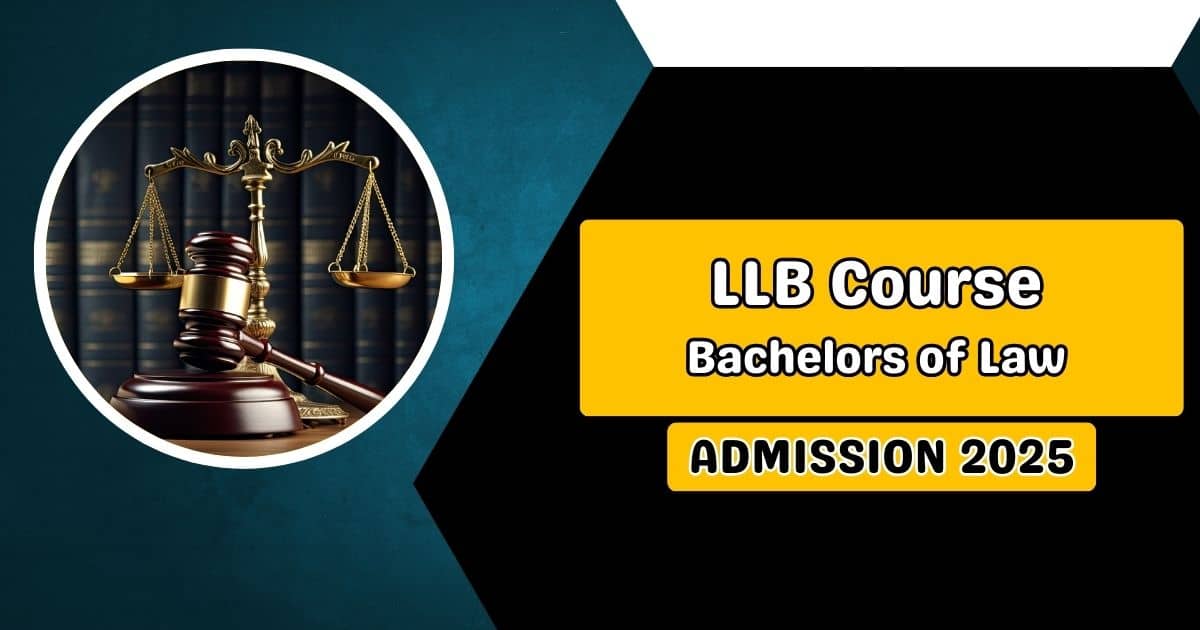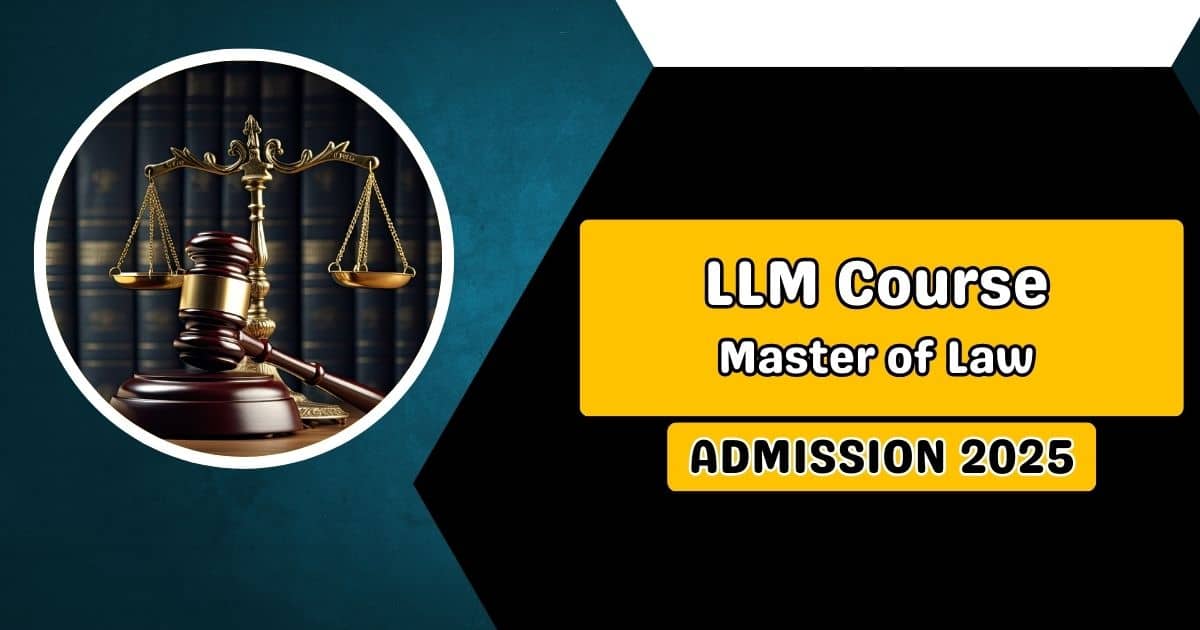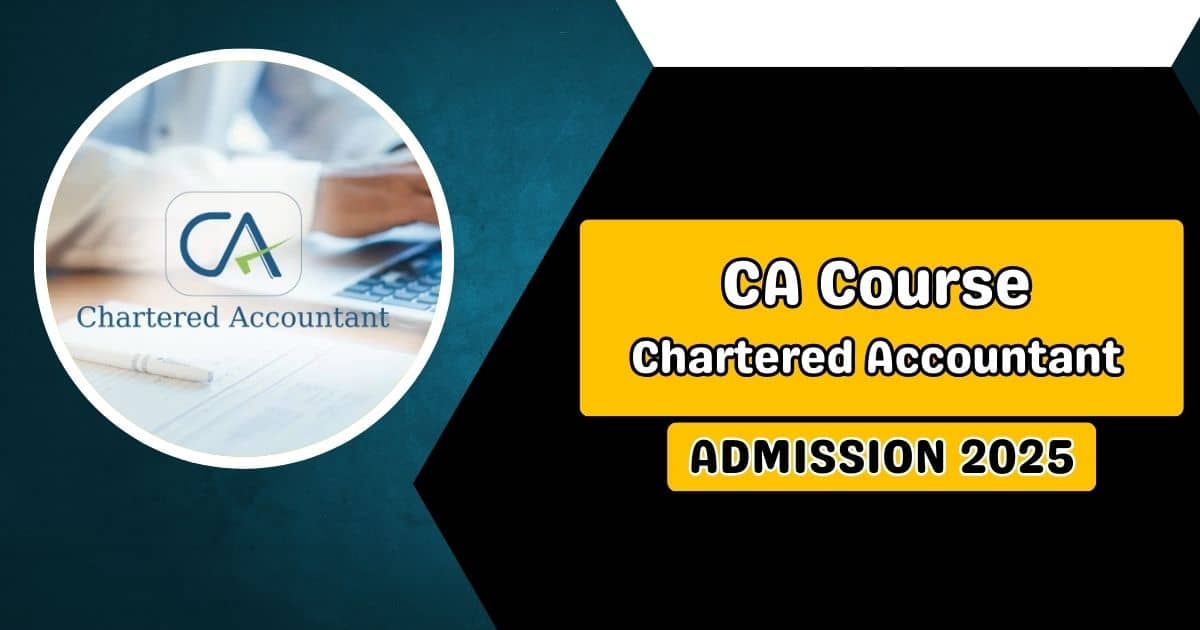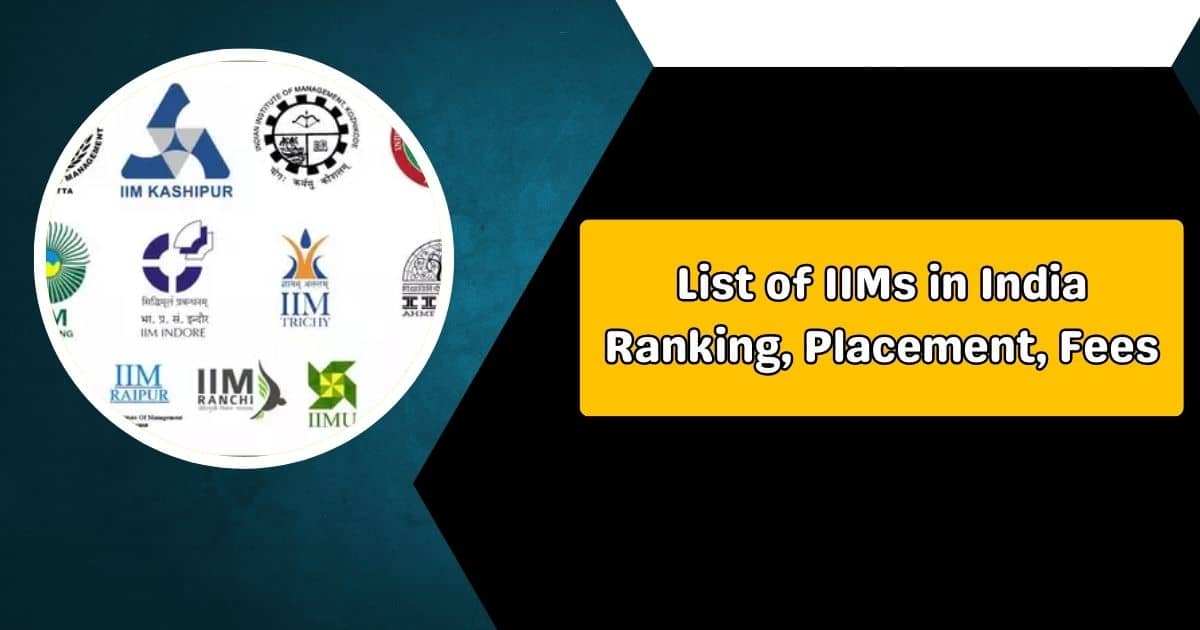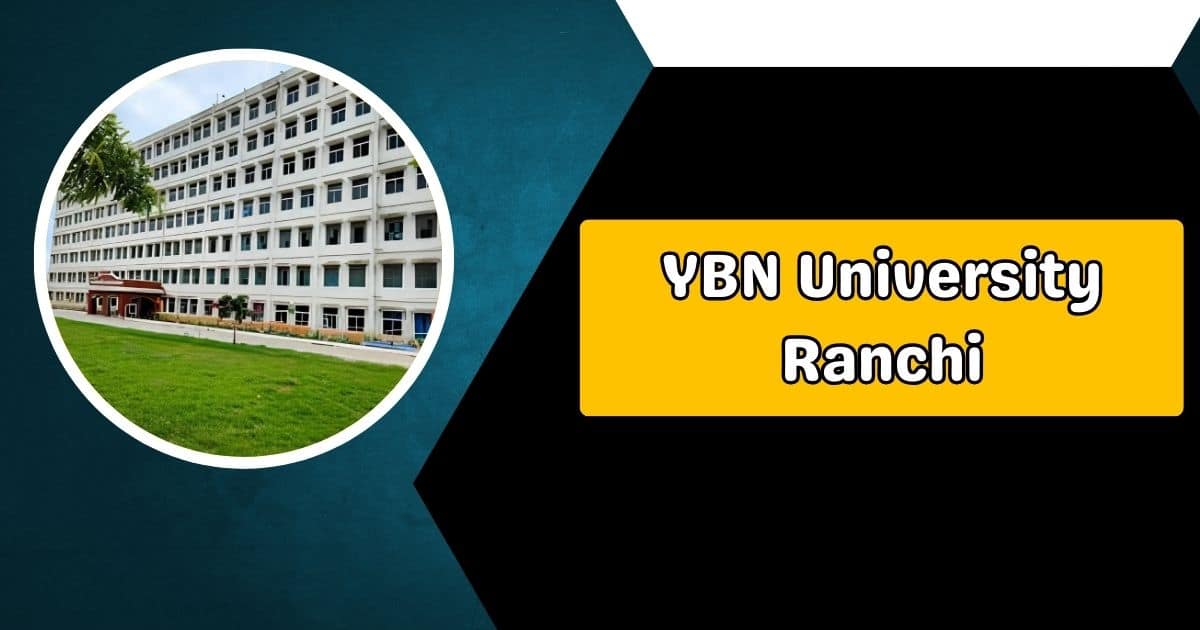
Company Secretary Course Highlights
| Particulars | CS Course Details |
|---|---|
| CS Full form | Company Secretary |
| Company Secretary Course Duration | Up to 4 years Company Secretary Course Duration after Graduation: 2.5 to 5 years |
| CS Course Admission Procedure | Scores in the entrance exam |
| CS Course Levels | 1. CSEET 2. CS Executive 3. CS Professional |
| CS Entrance Exam | 1. CSEET- For 12th Pass 2. CS Executive- For Graduation Pass (Direct Entry) |
| CS Course Eligibility Criteria | CSEET-10+2 CS Executive- Graduation |
| CS Course Fees | CSEET– ₹2000 + ₹1000 CSEET Classes Fees Executive– ₹18900 for CSEET Route, ₹23900 for Direct Route Professional– ₹20000 |
| CS Course Fees Structure | https://www.icsi.edu/media/webmodules/student/FeeDetails_Concession.pdf |
| CS Average Salary | INR 7-10 LPA |
| CS Job Profiles | Company Registrar Legal Advisor Corporate Policymaker Chief Administrative Officer Principal Secretary |
| CS Top Recruiters | KPMG Reliance Industries TCS Infosys Oliver Wyman Cognizant Aditya Birla Group ICICI Bank Amazon |

Concession in CSEET Registration Fees
Concessions in the CSEET registration fee are applicable as outlined in the table below:
| Category | Fee Concession |
| SC/ST | 50% |
| Physically Handicapped | 50% |
| Wards and Widows of Martyrs and Defence Service Personnel with Permanent Disability | 100% |
| Serving / Retired Personnel of Defence Services and Paramilitary Forces | 50% |
| ICSI Staff and Wards / Spouse of ICSI Staff | 75% |
| ICLS Officers/ Officers & Staff of MCA and affiliated offices (NCLT, SFIO and CCI) | 100% |
| Students from North Eastern States, Andaman & Nicobar Islands, Lakshadweep & Himachal Pradesh | 50% |
| Students from the Union Territories of Jammu & Kashmir and Ladakh | 100% |
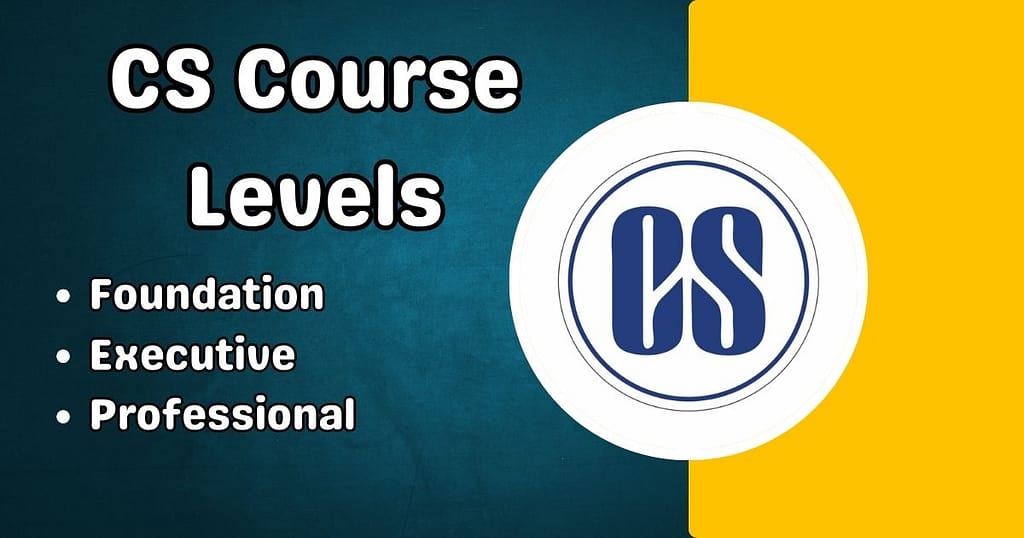
CS Course Levels
The Company Secretaryship course offered by the ICSI includes three levels:
| CS Course Level | CS Course Fees | Duration |
|---|---|---|
| CSEET | INR 2000 | 8 months |
| Executive Programme | ₹18900 for CSEET Route, ₹23900 for Direct Route | 9 months |
| Professional Programme | ₹20000 | 15 months |
Company Secretary Eligibility Criteria
The minimum qualification required to register for the first level (Foundation Programme or CSEET) of the Company Secretary course is to pass Class 12 in any stream (excluding Fine Arts) from a recognized university or equivalent.
Any student who aspires to become a certified Company Secretary must fulfill the given eligibility criteria to pursue the course:
| Stage | Qualification | Eligibility Criteria |
|---|---|---|
| Company Secretary Course After 12th | ||
| Foundation/CSEET | Entry-level exam | Passed 10+2 (or equivalent) in any stream except Fine Arts. No minimum percentage is required. CSEET (Company Secretary Executive Entrance Test) is now the mandatory qualifying test for all candidates seeking registration to the Executive Programme. |
| CS after Graduation | ||
| Executive Programme | Second level of CS course | Passed the Foundation Programme or CSEET. Graduates or Post-Graduates (excluding Fine Arts) are eligible for direct entry. |
| Professional Programme | Final level of CS course | Passed the Executive Programme. |
| Company Secretary Diploma Courses | High School | Class 10th |
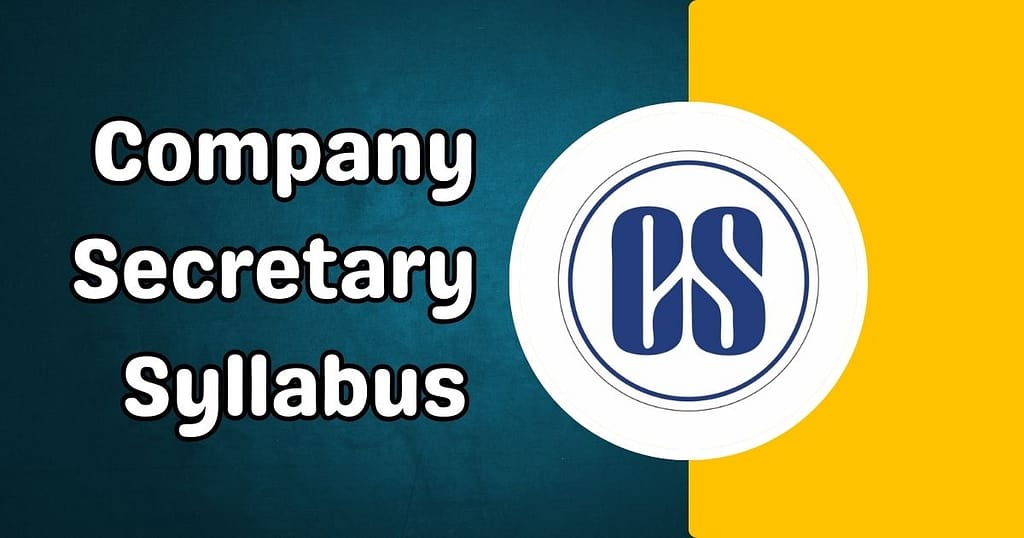
Typical Elective Subjects for Company Secretary Course
The below list comes under the Company Secretary syllabus:
| Subject title | Subject details |
|---|---|
| Banking Laws & Practice | This subject aims to develop a robust knowledge base about significant facets of the Banking Sector among those students who wish to pursue a career. |
| Insurance Laws & Practice | This subject aims to impart knowledge on insurance-related concepts amongst students to help broaden professional opportunities in the specific arena. |
| Direct Tax Laws & Practice | This subject aims to provide advanced knowledge regarding the practical application of Direct Tax Practices and their laws. |
| Forensic Audit | This subject aims to understand and analyse the concept of Corporate Fraud and Forensics Audit in the contemporary world and the legal mechanism to counter fraud. |
| Labour Laws and Practice | This subject aims to help students acquire expert knowledge, understanding, and application of Labour Laws. |
Detailed Syllabus for Company Secretary Course
| Program | Core/Elective | Subject |
| Foundation | Core | Business Environment & Law |
| Foundation | Core | Business Economics |
| Foundation | Core | Business Management, Ethics & Entrepreneurship |
| Foundation | Core | Fundamentals of Accounting and Auditing |
| Executive | Core | Jurisprudence, Interpretation and General Laws |
| Executive | Core | Company Law |
| Executive | Core | Setting up of Business Entities and Closure |
| Executive | Core | Tax Laws |
| Executive | Core | Corporate and Management Accounting |
| Professional | Core | Resolution of Corporate Disputes, Non-Compliances & Remedies |
| Professional | Core | Governance, Risk Management, Compliances and Ethics |
| Professional | Core | Drafting, Pleadings and Appearances |
| Professional | Elective | Banking Laws & Practice |
| Professional | Elective | Insurance Laws & Practice |
| Professional | Elective | Forensic Audit |
ICSI CS New Syllabus
CS Exam Syllabus: CSEET Syllabus
| Part | Subject | Marks |
|---|---|---|
| Part 1 | Business Communication | 50 |
| Part 2 | Legal Aptitude, Logical Reasoning and Quantitative Aptitude | 70 |
| Part 3 | Economic and Business Environment | 50 |
| Part 4 | Current Affairs | 30 |
| Total | 200 | |
CS Exam Syllabus: CS Executive Programme
Group 1
| Paper Number | Subjects | Marks |
|---|---|---|
| 1 | Jurisprudence, Interpretation & General Laws | 100 |
| 2 | Company Law & Practice Part I – Company Law – Principles and Concepts | 60 |
| Part II – Company Administration & Meetings | 40 | |
| 3 | Setting Up of Business, Industrial & Labour Laws Part I – Setting Up of Business | 60 |
| Part II – Industrial & Labour Laws | 40 | |
| 4 | Corporate Accounting and Financial Management Part I – Corporate Accounting | 60 |
| Part II – Financial Management | 40 |
Group 2
| Paper Number | Company Secretary Subjects | Marks |
|---|---|---|
| 5 | Capital Market & Securities Laws Part I – Capital Market | 40 |
| Part II – Securities Laws | 60 | |
| 6 | Economic, Commercial and Intellectual Property Laws Part I – Economic & Commercial Laws | 60 |
| Part II – Intellectual Property Laws | 40 | |
| 7 | Tax Laws & Practice Part I – Direct Tax | 60 |
| Part II – Indirect Tax | 40 |
CS Exam Syllabus: New CS Professional Examination Syllabus
Group 1
| Paper Number | CS Subjects | Marks |
|---|---|---|
| 1 | Environmental, Social and Governance (ESG) – Principles & Practice Part I – Governance and Sustainability | 65 |
| Part II – Risk Management | 20 | |
| Part III- Environment & Sustainability Reporting | 15 | |
| 2 | Drafting, Pleadings and Appearances Part I – Drafting and Conveyancing | 70 |
| Part II – Pleadings and Appearances | 30 | |
| 3 | Compliance Management, Audit & Due Diligence Part I – Compliance Management | 40 |
| Part II – Audit & Due Diligence | 60 | |
| 4 | Elective 1 (Select one Paper out of 4 Elective Papers) |
Group 2
| Paper Number | CS Subjects | Marks |
|---|---|---|
| 5 | Strategic Management & Corporate Finance Part I – Strategic Management | 40 |
| Part II – Corporate Finance | 60 | |
| 6 | Corporate Restructuring, Valuation and Insolvency Part I – Corporate Restructuring | 40 |
| Part II – Valuation | 20 | |
| Part III – Insolvency, Liquidation & Winding up | 40 | |
| 7 | Elective 2 (Select one Paper out of 5 Elective Papers) |
Company Secretary Syllabus: Specialisations
| Specialisation | Subjects in Company Secretary |
|---|---|
| Banking Law and Practice | Elective subject in Professional Programme |
| Capital, Commodity and Money Market | Elective subject in Professional Programme |
| Insurance Law and Practice | Elective subject in Professional Programme |
| Intellectual Property Rights – Law and Practice | Elective subject in Professional Programme |
| International Business-Laws and Practice | Elective subject in Professional Programme |
CS Syllabus: Books and Authors
| CS Subjects | Book Title | Author |
|---|---|---|
| Business Environment & Law | A Manual of Mercantile Laws | M.C. Shukla |
| Business Management, Ethics & Entrepreneurship | Management: Theory and Practice | NC. Jain, Saakhshi |
| Business Economics | Micro Economic Theory | H. L. Bhatia |
| Fundamentals of Accounting and Auditing | Essentials of Financial Accounting | Ashish K. Bhattacharyya |
| Company Law | Company Law | Avatar Singh |
| Tax Laws & Practice | Tax Laws & Practice for CS Executive Programme | Sangeet Kedia |
| Company Accounts & Auditing Practices | Taxmann Company Accounts and Auditing | NS. Zad |
CS Course: Foundation Level
| Papers | Parts | Marks |
|---|---|---|
| Paper 1. Business Environment and Law | Part A. Business Environment | 40 |
| Part B. Business Law | 60 | |
| Paper 2. Business Management, Ethics and Entrepreneurship | Part A. Business Management | 40 |
| Part B. Business Ethics | 10 | |
| Part C. Business Communication | 25 | |
| Part D. Entrepreurship | 25 | |
| Paper 3. Business Economics | Part A. Economics | 80 |
| Part B. Elementary Statistics | 20 | |
| Paper 4. Fundamentals of Accounting and Auditing | Part A. Fundamentals of Accounting | 70 |
| Part B. Fundamentals of Auditing | 30 |
CS Executive Entrance Exam
| Subject | Number of questions | Marks |
|---|---|---|
| Business Communication | 35 | 50 |
| Legal Aptitude and Logical Reasoning | 35 | 50 |
| Economic and Business Environment | 35 | 50 |
| Current Affairs | 15 | 20 |
| Total | 120 | 170 |
CS Course: Executive Level
| Module | Papers | Parts | Marks |
|---|---|---|---|
| Module 1 | Paper 1. Jurisprudence, Interpretation and General Laws | – | 100 |
| Paper 2. Company Law | Part A. Company Law, Principles &Concepts | 50 | |
| Part B: Company Administration and Meetings – Law and Practices | 40 | ||
| Part C: Company Secretary as a Profession | 10 | ||
| Paper 3. Setting up of Business Entities and Closure | Part A: Setting up of Business | 40 | |
| Part B: Registration; Licenses & Compliances | 35 | ||
| Part C :Insolvency; Winding up& Closure of Business | 25 | ||
| Paper 4. Tax Laws | Part A: Direct Taxes | 50 | |
| Part B: Indirect Taxes | 50 | ||
| Module 2 | Paper 5. Corporate & Management Accounting | Part A: Corporate Accounting | 60 |
| Part B: Management Accounting and Valuation | 40 | ||
| Paper 6. Securities Laws & Capital Markets | Part A. Securities Laws | 70 | |
| Part B. Capital Market & Intermediaries | 30 | ||
| Paper 7. Economic, Business and Commercial Laws | Part A. Foreign Exchange Management &NBFCs | 40 | |
| Part B. Competition Law | 25 | ||
| Part C. Business & Commercial Laws | 35 | ||
| Paper 8. Financial and Strategic Management | Part A. :Financial Management | 60 | |
| Part B. Strategic Management | 40 |
CS Course: Professional Level
| Module | Paper | Parts | Marks |
|---|---|---|---|
| Module 1 | Paper 1. Governance, Risk Management, Compliances and Ethics | Part A. Governance | 50 |
| Part B. Risk Management | 20 | ||
| Part C. Compliance | 20 | ||
| Part D. Ethics & Sustainability | 10 | ||
| Paper 2. Advanced Tax Laws | Part A. Indirect Taxes | 70 | |
| Part B. Direct Tax & International Taxation | 30 | ||
| Paper 3. Drafting, Pleadings and Appearances | – | 100 | |
| Module 2 | Paper 4. Secretarial Audit, Compliance Management and Due Diligence | Part A. Compliance Management | 40 |
| Part B. Secretarial Audit &Due Diligence | 60 | ||
| Paper 5. Corporate Restructuring, Insolvency, Liquidation & Winding-up | Part A. Corporate Restructuring | 50 | |
| Part B. Insolvency& Liquidation | 50 | ||
| Paper 6. Resolution of Corporate Disputes,Non-Compliances& Remedies | – | 100 | |
| Module 3 | Paper 7.Corporate Funding & Listings in Stock Exchanges | Part A. Corporate Funding | 60 |
| Part B. Listing | 40 | ||
| Paper 8. Multidisciplinary Case Studies | – | 100 | |
| Elective Paper 9: 9.1- Banking – Law & Practice 9.2- Insurance – Law & Practice 9.3- Intellectual Property Rights: Laws and Practices 9.4- Forensic Audit 9.5- Direct Tax Laws & Practice 9.6- Labour Laws& Practice 9.7- Valuations & Business Modelling 9.8- Insolvency – Law and Practice | – | 100 |
Company Secretary Training
| Type of Training | Description | Duration |
|---|---|---|
| SIP or Student Introduction Programme | Students must pursue this training within 6 months after applying for the CS executive program to be eligible to sit for the exams for both modules. | 7 days |
| EDP or Executive Development Programme | This training course is the most pursued among all, which the students can enter after the CS training program before the 15 months of training. | 8 days |
| Compulsory Computer Training Programme | All students must pursue this course to be eligible for the CS executive program. | 70 hours |
| PDP or Professional Development Programme | Candidates must pursue this training course for 15 months. | 25 hours |
| Specialized Agency Training | Students can pursue this course after completing EDP or SIP or passing the professional program and completing the 15 months of training. | 15 days |
| MSOP or Management Skills Orientation Programme | This training course can be pursued if the student has been partially or fully exempted from training and has registered the documents needed to fulfill the regulation of 1982. | 15 days |
| Professional or Management Training | Candidates can pursue this course after completing the CS Executive or CS professional program. Students must complete their training with companies registered with the Company Secretary in Practice or the ICSI Institute. | 15 months |
| Practical Training | Candidates can only pursue this training course if they have completed the cs professional program. Also, they are eligible to do this training only if they are exempted from undergoing the 12 months of training under the 1982 companies secretaries regulation. | 3 months |
A Company Secretary (CS) is one of the chief posts in an organization. A guaranteed Company Secretary handles the legitimate parts of a business endeavor or a person. A CS is answerable for keeping up with and examining the organization’s expense forms, keeping records, informing the board concerning chiefs regarding the monetary soundness of the organization, and guaranteeing that the organization conforms to lawful and legal guidelines.
The Institute of Company Secretaries of India controls and keeps up with the calling of Company Secretaries. The ICSI gives preparing and training to lakhs of hopeful Company Secretaries. Currently, over 50,000 individuals and around 4,00,000 understudies are on the ICSI rolls. The Institute of Company Secretaries of India gives preparing to applicants seeking to seek after CS. The organization leads the CS program at three levels. On culmination of this large number of three levels, applicants are given a declaration to rehearse Company Secretary Ship as a calling.
Upcomers looking for rewarding positions in the corporate world can have an extraordinary beginning with this Company Secretary Course. In this article, you will have complete data about the CS Course like Fee, Eligibility, Course Duration, Syllabus, Job Prospects, etc. Transform into a talented expert by going through this CS Course. With the right blend of pragmatic preparation and scholastic program, the CS Course opens sufficient corporate opportunities. Upcomers must go through various projects as a piece of this Course: overall Foundation Program, Executive Program, & Professional Program.
Suppose you are someone who wants to pursue Company Secretary courses. In that case, this article is for you, as findmecollege in this article has presented the structure of the Company Secretary Course with the details such as eligibility, colleges as well as Course down below:
Eligibility:
Any understudy who tries to turn into an affirmed Company Secretary should satisfy the given qualification rules to seek after the Course:
- The least capability expected to enroll for the main level (Foundation Program or CSEET) of the Company Secretary Course is to Class 12 pass in any stream (except Fine Arts) from a perceived college or the same.
- The upcomer who wishes to seek after CS after graduation should finish just two levels: Executive Program and Professional Program.
- Those who have finished graduation, post-graduation (except Fine Arts), or have cleared Foundation level of CA and Cost Accounting Course by ICWAI can straightforwardly take admission to CS Executive level. Besides, upcomers neglecting to clear the establishment and chief programs after 10 +2 or leader programs after graduation are not qualified for the Professional Program.
Organization Secretary Courses & Subjects:
- This Course is a corporate expert course. The Company Secretary Foundation course incorporates business climate, business, executives, correspondence, morals, financial aspects, and bookkeeping.
- The Company Secretary’s Executive schedule includes organization regulation, business regulation, charge regulation, general regulation, protection regulation, and records and review practice.
- In the Company Secretary Final course, upcomers are shown secretarial practices, monetary and depository the executives. In the last module, up-and-comers can pick one of the specializations given below: Banking Law and Practice, Capital, Commodity and Money Market, Protection Law and Practice, Protected innovation, Rights – Law and Practice, Global Business and Practice, Company Secretary Career Prospects and Opportunities.
- CS experts have a splendid future. It is one of the esteemed work profiles in Commerce and Accounting. In the wake of following through with the tasks, competitors can make a vocation in stock trade; organization issues divisions, monetary examining firms, regulation sheets, and different government offices.
- Company Secretary Course opens different roads for a person. A prepared and confirmed Company Secretary can fill in as an autonomous counselor to a firm for methods of credits, charges, associations, government licenses, enlistments, and so on, or join an organization secretary firm to deliver administrations to its clients.
Company Secretary Job Profiles:
Like a Chartered Accountant, a Company Secretary is a fundamental mainstay of business undertakings, regardless of whether large or small, government or private. Each business requires a Company Secretary to deal with charge, lawful, and speculative viewpoints on ordinary premises.
Many organizations enlist autonomous organization secretaries, while others choose administrations presented by Company Secretary Firms. A certified Company secretary will track down work across all ventures – from monetary firms and banks to weighty industries and government associations.
Organization Secretary Entrance Exams:
- ICSI’s CS Program is always Open, and tests will be held double a year, for example, in June and December. Apply according to your decision of the Exam month.
- If you wish to attend the Foundation Program Exam in December (Same year), select at the latest March 31. Select before September 30, assuming you will attend the test in June (Next Year).
- The people who wish to join the Company Secretary from the Executive Program level should motivate themselves to enlist by February 28 to show up in the two modules in the December test around the same time or by August 31 to show up in the two modules in the June test one year from now.
- If one needs to appear in a solitary module in the June Examination the following year, they should enlist in the Executive Program before November 30.
- Applicants are proclaimed to have passed the Foundation/Executive/Professional Examination if they get at least 40% imprints in each paper and half checks.
Obligations Of A Company Secretary Include:
To stay with the records, keep up with the organization’s assessment forms, and inform the Board concerning Directors of their legitimate commitments for consistency with legal regulation.
A Company Secretary is a significant connection between the organization and its directorate, investors, administrative specialists, government, and partners.
The occupation incorporates guaranteeing that the methods are followed and assessed. It likewise remembers directing the Chairman and the Directors for their obligations under different regulations.
Educating on excellent administration and consistency concerning standards as endorsed under different Corporate, Securities, and other Business Laws and guidelines and rules made thereunder.
The Company Secretary additionally helps with fostering a corporate and social manageability structure. CS is answerable for secretarial consistency review and accreditation benefits and addressing the organization under the steady gaze of the law board, buyer discussions, charge courts, protections re-appraising council, enlistment centers, and so on.
Frequently Asked Questions (FAQ)
Question: What are the Company Secretary (CS) courses?
Ans: The CS or Company Secretary course is among the best courses for a commerce background student. The course is divided into three levels- CSEET (Foundation
), Executive and Professional. CS is a professional course like CA, which focuses on key areas like corporate Governance, legal and regulations, corporate records, compliance, and giving the right advice and guidance to the board on government issues.
Question: What is the duration of Company Secretary course?
Ans: The Company Secretary course is typically for 3 years if the candidate clears all the exam levels- Foundation, Executive, and Professional. CS course also involves industrial training, articleship for giving the candidate industry exposure and corporate experience.
Question: Is CS good for future in India?
Ans: Company secretary is a good career option for students willing to make their career in corporate. A CS can work for MNCs or start their practice. A CS offers a huge scope in the Indian market with a higher-paying job; a fresher candidate can easily get 8-12 LPA, while an experienced candidate can reach 1-1.5 Crore annually.
Question: Is a Company Secretary a good career option?
Ans: Yes Company Secretary is a good career option. It offers the opportunity to work in corporate or start practicing. It is one of the highly demanded careers with huge potential.
Question: Is CS better than CA?
Ans: It depends; CS and CA are professional courses with huge potential. It depends upon the individual choice and interest. CA usually takes 5 years to complete and CS takes around 3 years. CA focuses on accounting, auditing, and taxation. It is a completely practical course, and CS focuses on Governance, compliance, and corporate law, which is completely theoretical. Many people have CA and CS degrees.
Question: Can I do a Company Secretary course with a full-time job?
Ans: Yes, you can do a Company secretary course along with a full-time job. CS courses can be pursued by working professionals as they offer distance learning. However, you must manage your schedule accordingly, as the course demands at least 4-5 hours of regular study.
Question: My communication skills are not good. Am I eligible for a CS course?
Ans: Of course, you are eligible for the CS course there are no set rules for this. However, a CS candidate must have good communication skills. You need to work on your personality as well as your communication skills. There are various courses for improving communication skills. The institute also provides you with various training programs to help you improve your skills.
Question: How to get direct admission for CS?
Ans: A candidate who has completed his 10+2 (except fine arts) from a recognized board is eligible for the CS foundation course. Any candidate who has completed their graduation (except fine arts) from a recognized board is eligible for direct entry into CS executive. There are also exemptions for students who have cleared ICAI or ICAMI Final.
Question: Can we do both the MBA and company secretary at a time?
Ans: Yes, of course, you can do both MBA and CS at the same time. As the CS course offers you flexibility and distance learning, it can be pursued by an MBA student. You also need to give enough time to the CS course, which requires 4-5 hours of daily routine.
Question: Can I join CS course after 12th?
Ans: Yes, of course, you can join the CS course. The basic requirement is 10+2 from a recognized board (except for fine arts students). You need to take CSEET after enrolling in ICSI.
Question: What is a CS course salary?
Ans: The starting salary of fresher CS starts from 5-12 LPA, depending upon the candidate’s skills, potential, and qualifications. An experienced candidate can easily get between 20-25 LPA, and the highest salary you can expect from this industry is 1-1.5 Crore annually.
Question: What is a CS qualification?
Ans: If anyone wants to pursue CS, the basic qualification required to enroll in a CS course is the candidate must pass 10+2 from a recognized board (except fine arts students), and students who have completed their graduation from a recognized university (except fine arts students) can get direct entry in the executive level.
Question: What is the role of a company secretary?
Ans: The basic role of a company secretary is to govern government regulations and compliance, advise the board on legal matters, and maintain accurate records. Basically, a CS handles all the legal work and compliance for a company.
Question: Who earns more CA or CS?
Ans: CA and CS are some of the best professionals with potential earnings. But generally a CA earns more than a CS because of higher demand and financial roles. CS candidates can also earn well. It also depends upon the candidate’s skills and qualifications.
Question: Can a 12th pass apply for CS
Ans: Yes, of course you can apply for a CS course. If you have passed your 10+2 from a recognized board (except for fine arts students), you are eligible for CSEET, which is the first level of the CS course.
Question: Is CS hard to study?
Ans: CS is one of the difficult professions, with a passing percentage of just 20%. But it is achievable if you are dedicated and focused, you can clear the CS exam.
Question: What is the salary of a company secretary?
Ans: The starting salary of a fresher Company secretary is 5-10 LPA. With 2-3 years of experience, a CS can earn 8-15 LPA, and a CS with 5-10 years of experience can easily earn between 20-25 LPA. It also depends upon the candidate’s skills and other qualifications. A CS with a law degree is likelier to earn more than a CS without a law degree.
Question: Is CS easy than CA?
Ans: Yes, if you compare CS and CA then CS is quite easy. As the CS syllabus is not that wide compare to CA. The CS exam is completely theoretical exam while CA exam consist of both theory and practical part.
Question: Is company secretary course difficult to pursue?
Ans: Yes Company secretary is one of the most difficult and challenging course which requires high amount of effort, dedication and consistency. The professional level is considered to be the difficult of all.
Question: Can I appear for CSEET if I have not cleared 10+2?
Ans: No the basic eligibility criteria for appearing for CSEET exam is the candidate should passed or be appearing for 10+2 exam.
Question: Are only graduates allowed to appear for CSEET?
Ans: Yes graduation students can appear for CSEET exam but a graduated student can get direct entry in CS Executive exam so its better for him to get enrolled in CS Executive.
Question: Which of these is more difficult, CS executives or CS professionals?
Ans: The CS professional is more difficult compare to CS executive level. CS professional has wide topic and syllabus.
Question: Are there unlimited attempts in CS executive and CS professional?
Ans: No, there are no unlimited attempts for CS executive and professional level. Candidates get 10 attempts each for CS executive and CS professional.
Question: Is it compulsory to attend pre-exam test for CS executive odop or go without pre-exam test to odop?
Ans: Yes it is compulsory for CS students to attend pre-exam test and attend (one day orientation program) before enrolling in CS executive and CS professional.
Question: Is Maths compulsory for CS?
Ans: No, maths is not compulsory for CS course. But a basic maths is required for calculations it can be helpful for students to deal with subjects like taxation where basic calculation is required.
Question: Can CS and CA be pursued together?
Ans: Yes CS and CA can be pursued together many students can pursing both the courses together. While some of the topics are same and overlapping so it can be easy for students to study.
Question: Can I complete CS in 2 years?
Ans: No, CS students requires at least 3-4 years time to complete the entire course. For direct entry it can take up to 2-2.5 years. As it involves 21 months of practical training
Question: Are Company Secretary in demand in India?
Ans: Yes the company secretary course is one of the most demanded course in India. Top companies requires CS for corporate governance, compliance requirements, and regulatory frameworks. And the demand will also increase in future as more companies will establish in India.
Question: Is CS good for future in India?
Ans: Yes the company secretary course is one of the most demanded course in India. Top companies requires CS for corporate governance, compliance requirements, and regulatory frameworks. And the demand will also increase in future as more companies will establish in India.
Question: What is the salary of CS fresher?
Ans: The typical salary of CS fresher in India is between 7-10LPA. While the candidates who have good score and academics can earn between 10-12 LPA.
Question: What is the role of a Company Secretary?
Ans: The role of a company secretary is to manage the compliance of the company and give corporate governance and also check the regulatory framework. The basic role is to manage all the legal and compliance issue of a company
Question: What should I know beforehand when entering a CS (Company Secretary) course?
Ans: CS course is one of the most difficult course where you will to dedicate 5-6 hours daily to clear the exam. The basic role of a CS is to manage all the compliance and legal framework of the company. You will have to meet CEO, Boards of director and other top key level people and guide them about the legal and compliance issue of the company. It is one of the most challenging job also which requires high dedication.
Question: Which course has more scope among CA and CS?
Ans: Both CA and CS have potential and scope these professionals have high demand in India and abroad. However, CA’s offers a broader scope due to the higher demand for financial roles. A CA can earn more in the corporate role and self-practicing. While CS opportunities are growing in India and in the future, CS will have huge demand like CA.
Question: How beneficial is getting a degree in CA/CS/CMA for my corporate job?
Ans: If someone is working in financial roles, then CA and CMA courses can benefit them in getting a promotion and a good position in their corporate job. CA and CMA
Question: What is the eligibility for company secretary course?
Ans: The basic eligibility criteria for the company secretary course is the candidate must have passed 10+2 or equivalent exam from any recognized board. Fine arts students are not eligible for the company secretary course. Graduate students are eligible for direct entry into executive programs; however, fine arts students are not eligible.
Question: How many attempts do I have for each level of CS course?
Ans: CS candidates have six attempts for the Foundation (CSEET) program, 10 for the Executive program, and 10 for the professional program. The candidate needs to clear all the levels within the limit.
Question: What subjects are covered in the CS course?
Ans: The CS Course has three levels: CSEET, Executive, and Professional. The subjects covered in three levels are-
Foundation Papers-
Paper 1. Business Environment and Law
Paper 2. Business Management, Ethics and Entrepreneurship
Paper 3. Business Economics
Paper 4. Fundamentals of Accounting and Auditing
Executive Papers-
Paper 1. Tax Laws
Paper 2. Jurisprudence, Interpretation & General Laws
Paper 3. Company Law
Paper 4. Setting up of Business Entities and Closure
Paper 5. Corporate & Management Accounting
Paper 6. Economic, Business, and Commercial Laws
Paper 7. Financial and Strategic Management
Paper 8. Securities Laws & Capital Markets
Professional Papers-
Paper 1. Environmental, Social and Governance (ESG)
– Principles & Practice Part I – Governance and Sustainability
– Part II – Risk Management
– Part III- Environment & Sustainability Reporting
Paper 2. Drafting, Pleadings and Appearances
– Part I – Drafting and Conveyancing
– Part II – Pleadings and Appearances
Paper 3. Compliance Management, Audit & Due Diligence
– Part I – Compliance Management
– Part II – Audit & Due Diligence
Elective 1 (Select one Paper out of 4 Elective Papers)
Group 2
Paper 4. Strategic Management & Corporate Finance
– Part I – Strategic Management
– Part II – Corporate Finance
Paper 5. Corporate Restructuring, Valuation and Insolvency
– Part I – Corporate Restructuring
– Part II – Valuation
– Part III – Insolvency, Liquidation & Winding-up
Paper 6. Elective 2 (Select one Paper out of 5 Elective Papers)
